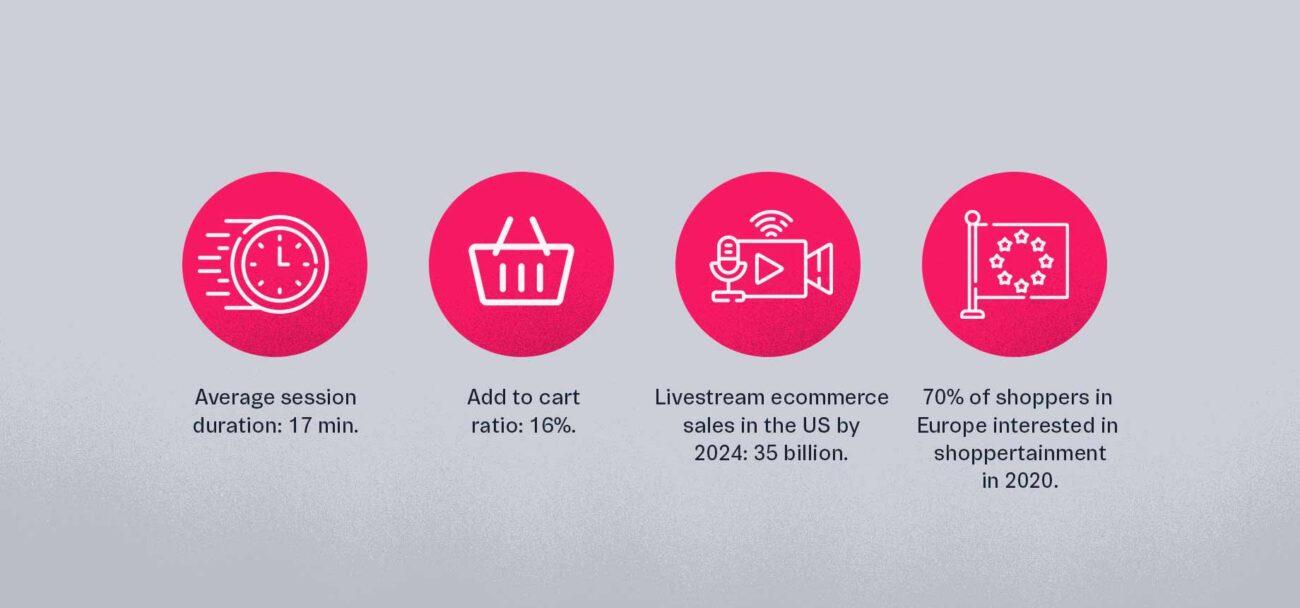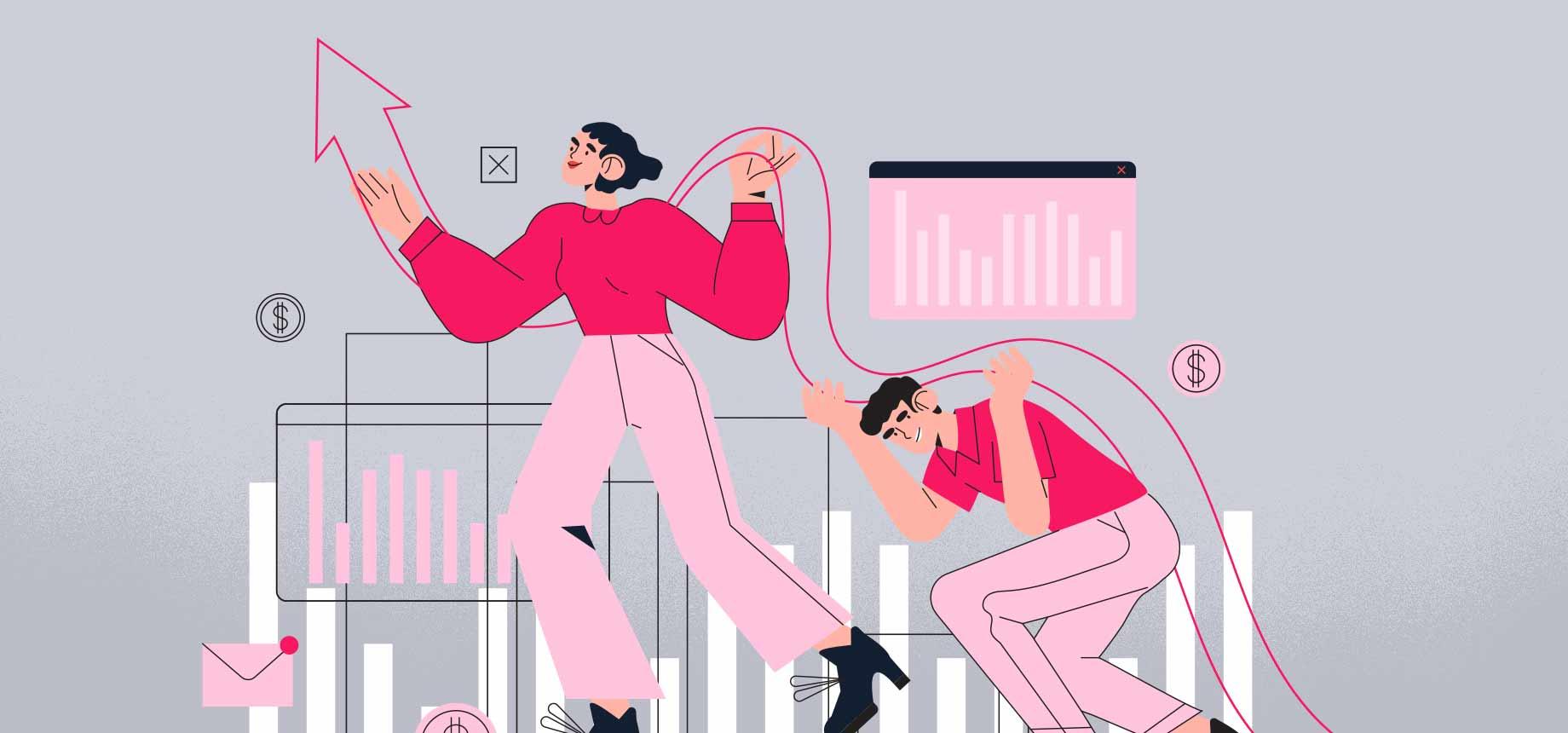Live Shopping, the ecommerce experience that pairs live video streams with the capabilities of a traditional online store, has grown its popularity exponentially in recent years and has been adopted by some of the biggest players in the ecommerce industry. Regardless, some online retailers are still unsure of the impact that adopting this trend could have on their businesses.
To date, it’s mostly small sellers who’ve taken advantage of the trend, supported by infrastructure from Amazon and other players, but audiences seem to be more than ready to jump on board and could be waiting for the right offer. Here are four statistics that tell the tale of the potential hidden inside Live Shopping.
Lend me your ear
The most important piece for Live Shopping’s potential is interest. Most online shoppers have gotten used to buying online, and the experience doesn’t provoke the same rush it once did. Traditional ecommerce still has room for growth, but maybe it’s time to offer something different for current customers.
Live Shopping is a good way to build a better relationship with your audience, which feels like they’re part of a newly formed community that has a common interest around your products. According to Statista, more than 14% of people in the United States are interested in Live Shopping, while 70% of consumers in Europe reported being interested in shoppertainment in 2020.
These numbers, of course, vary wildly between markets: in Brazil, more than 88% of consumers reported that they intend to participate in a Live Shopping session in the future, while in China, more than 30% already have.
You had my interest, now you have my attention
Interest is important, but curiosity doesn’t usually translate into visits, let alone sales. In the case of Live Shopping, it very much does: Live Shopping experiences hosted by VTEX’s clients –and helped by Amazon Web Services' robust architecture– have an average session duration of around 17 minutes, which is more than 5 times greater than regular session times.
This is possible because buyers are attracted to a new format they’ve never interacted with, a format that’s capable of delivering big amounts of information in short periods of time. This helps keep potential buyers entertained while introducing them to new products and services that they wouldn’t have heard of otherwise. All of these while making better use of their time — with the picture-in-picture (PiP) feature, for instance, shoppers can watch and buy at the same time. So: Live Shopping is also a tool to deliver a better customer experience.
In some cases, Live Shopping events have been used to launch a new collection, and they have resulted in better sales for old collections as well. Live Shopping helps you increase traffic and keep your customers’ attention in real-time. What you do with it is up to you.

Putting the cart before the horse
According to Statista’s previously mentioned study, during the third quarter of 2020, conversion rates fell to around 2% across ecommerce, which means that online stores have to fight to get even more clicks if they want to grow their total revenue. This is an even bigger challenge if we consider that 2021 slowed some of the growth that ecommerce had experienced during 2020, as a result of the COVID-19 pandemic.
Live Shopping benefits from offering a more personal experience for consumers, and this experience is clearly valuable to them: during Live Shopping sessions organized by VTEX, the “add to cart” ratio has hovered around 16%.
Take into account that, according to Little Data, a ratio of over 10.4% would put you above 90% of online stores. So: for the duration of the live shopping event, your store will behave close to the best 10% stores in the world.
Money talks
We know that the most important metric for some stores is revenue. According to Statista, by 2024 the American Live Shopping market will have sold $ 35 billion USD. This takes into account the current trends of ecommerce growth and Live Shopping adoption.
This statistic could even turn out to be a bit conservative: in China, Live Shopping already represented 20% of ecommerce sales five years after its introduction.
Of course, there is a world outside the US, and some polls have shown stronger acceptance of Live Shopping events in other markets, which could also mean better results than currently expected. There is much space for growth and, for trailblazers, the sky seems to be the limit.
A matter of time
At VTEX, we’re uniquely positioned to talk about the future of this new trend, since we’ve experienced first-hand what it can do for both retailers and customers.
In Europe and America, its future growth might go through existing apps and experiences that can just be linked with an online shopping solution through the use of APIs and headless ecommerce like the ones offered by VTEX.
This would mean faster implementation, which would give us a quick glimpse into the future of a promising technology that seems to have an eager audience waiting for the right moment to interact with it.
